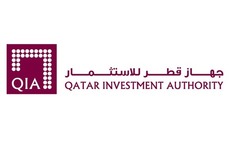
Q&A: CVC Capital Partners' Sigit Prasetya
Sigit Prasetya, managing partner at CVC Capital Partners, on why recent volatility in Indonesia shouldn’t concern PE investors, negotiating auctions and lofty valuations, and working with Southeast Asia’s family groups
Q: Indonesia's economy has weakened recently. Has this soured PE investor sentiment and is the mood justified?
A: I suspect it's more a function of how people understand the market and the country. I look at it more from a medium-term point of view. Yes, there are short-term issues with the current account, inflation, maybe a bit of an economic slowdown as a result. But overall, if you look at the secular trends - Indonesia being a large population, a young population and a middle-income growing population - they are still there. One should never expect a straight line for a country like Indonesia; since the Asian financial crisis there have been ups and downs. But PE has the ability to be patient and my view is the economic fundamentals are still solid.
Q: Given the drop in the public markets, how significant was the timing of the Matahari Department Store offering?
A: For any public marketing offering, you need to take advantage of the window. The timing was good with Matahari, but even with the recent sell down, the stock price is holding up. We did the IPO at IDR10,850 and it is now trading 10-20% higher, significantly outperforming the market and its peers. People see through the market volatility and recognize a good quality business with a high scarcity value because it is the leading retailer in Indonesia and probably in Southeast Asia as well.
Q: Has all the hype about Indonesia has exaggerated the size of the opportunity?
A: PE activity in Southeast Asia should gradually pick up over time, simply because the supply of capital is increasing. But it will not be hockey stick - the market won't grow that quickly. It will take time for businesses and families to become more familiar with PE and how we add value.
Q: So some of these investors will be disappointed...
A: There is a lot of capital; a lot of big firms are trying to put capital to work. It remains to be seen whether or not they end up disappointed. But how many deals with an enterprise value of more than $200 million do you think there have there been in Southeast Asia in the last five years? Probably only around 20. That means you only see a handful each year. Deal flow is lumpy and you don't know where it's going to be - the Philippines, Indonesia, Malaysia. It is still very much early days for investing in Southeast Asia.
Q: How much of a concern are valuations?
A: Public market valuations are a good benchmark because that is where potential sellers look to value their assets. The markets in Southeast Asia went up enormously in the first half of the year but now they are normalizing, so they look more reasonable. Despite what people say about the slowdown in Indonesia, the corporates are very healthy - strong balance sheets, lots of cash - and consumer debt is very low in Indonesia and the Philippines.
Q: Does that strength mean deals are scarcer and as a result valuations go up?
A: If there aren't many deals and everyone shows up to an auction, then whoever wins usually overpays for the asset. The current market uncertainties, if they continue, will moderate valuation expectations. However, valuations are not everything. Most of the big investment banks have been active in Southeast Asia for a while now, so the level of intermediation is good. But in most cases, if a family or business group wants to sell, there is a reluctance to hire a bank and do a full auction for face considerations.
Q: How many of CVC's deals have come via auction?
A: Of the eight investments we have made in Southeast Asia over the last 5-6 years, only two came from auctions - GS Paper & Packaging in Malaysia and then Link Net in Indonesia, both of which were limited auction processes. Regarding Link Net, we had already done Matahari with the same owner, Lippo Group. A handful of firms were invited into the Link Net process but they ended up working with us because of the relationship and the comfort level.
Q: And how many control deals?
A: We only have one minority deal - Rizal Commercial Banking Corp. in the Philippines. The rest are control-oriented investments. There are more buyouts than in China, but we generally still see more growth capital than control deals.
Q: How do you convince people to sell who aren't under pressure to sell?
A: It's important to have that relationship base and understanding of the market place to get deals done. With QSR Brands and KFC Holdings in Malaysia, Johor Corporation was never a seller. There were previous efforts by private equity firms to buy that business but they all failed because it wasn't for sale. However, they saw the value of partnering with us, privatizing the business and improving it, and ultimately doing a re-listing together. Every situation is unique so you have to be able to identify them. With Johor Corp, we had covered them for a while and cultivated the relationship.
Latest News
Asian GPs slow implementation of ESG policies - survey
Asia-based private equity firms are assigning more dedicated resources to environment, social, and governance (ESG) programmes, but policy changes have slowed in the past 12 months, in part due to concerns raised internally and by LPs, according to a...
Singapore fintech start-up LXA gets $10m seed round
New Enterprise Associates (NEA) has led a USD 10m seed round for Singapore’s LXA, a financial technology start-up launched by a former Asia senior executive at The Blackstone Group.
India's InCred announces $60m round, claims unicorn status
Indian non-bank lender InCred Financial Services said it has received INR 5bn (USD 60m) at a valuation of at least USD 1bn from unnamed investors including “a global private equity fund.”
Insight leads $50m round for Australia's Roller
Insight Partners has led a USD 50m round for Australia’s Roller, a venue management software provider specializing in family fun parks.







